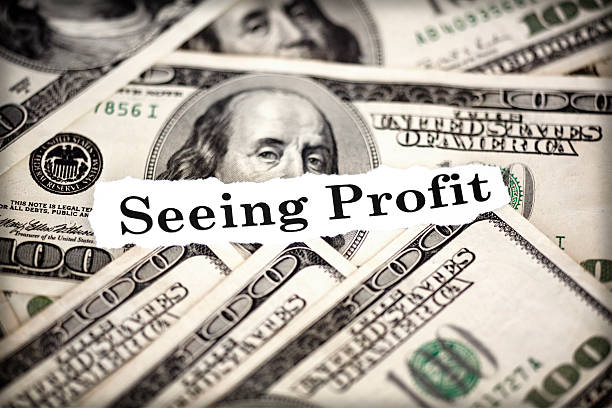Navigating the world of government loans and grants can be a game-changer for individuals and businesses looking to secure funding for various purposes, from education to starting a new business or supporting a nonprofit. Unlike private loans, government loans and grants often come with more favorable terms, lower interest rates, or even no requirement for repayment in the case of grants. However, finding and qualifying for government funding requires a clear understanding of the types of assistance available, where to apply, and how to meet eligibility criteria. Here’s a guide to help you find and qualify for government loans and grants that meet your financial needs.
Table of Contents
Toggle1. Understanding the Difference Between Government Loans and Grants
Before diving into the application process, it’s essential to understand the differences between government loans and grants, as they serve different purposes and come with different requirements.
Government Loans
Government loans are financial assistance programs funded or backed by federal or state governments. These loans are typically designed to support individuals and businesses in areas that contribute to economic growth, such as education, small business development, and homeownership. Some of the most common government loans include:
- Student Loans: Loans offered through programs like Federal Direct Loans to help students pay for education.
- Small Business Loans: Loans from the Small Business Administration (SBA) to assist startups and small businesses with financing.
- Housing Loans: Mortgages backed by programs like FHA and VA loans to help individuals purchase homes.
Government loans usually offer lower interest rates and more favorable terms than private loans. However, they must be repaid, just like any other loan.
Government Grants
Grants, unlike loans, do not require repayment and are essentially “free money” provided for specific purposes, such as research, education, and community projects. Federal and state governments offer grants to individuals, nonprofits, and small businesses to support activities that benefit society or foster economic growth. Grants often come with strict guidelines and reporting requirements, and they are awarded based on merit or need.
Some examples of government grants include:
- Educational Grants: Grants such as the Pell Grant to help low-income students pay for college.
- Business Grants: Grants from agencies like the SBA or Department of Agriculture for business initiatives, especially in underserved or rural areas.
- Research and Development Grants: Grants for scientific research or innovative projects, often provided by agencies like the National Institutes of Health (NIH) or Department of Energy.
2. How to Find Government Loans and Grants
Finding government loans and grants can seem overwhelming, but there are many online resources and agencies that can help you locate the right funding options.
Federal Government Resources
The U.S. federal government provides a centralized platform for information on loans and grants. Here are some key websites to start your search:
- Grants.gov: This is the main portal for federal grant opportunities. It provides information on thousands of grants from various federal agencies, making it easy to search by category, eligibility, and application deadlines.
- Benefits.gov: This site offers a range of resources on government benefit programs, including grants and loans. You can search by need or category and take an online questionnaire to determine eligibility.
- USA.gov: The official U.S. government website offers information on various government funding options, from housing assistance to business loans.
State and Local Government Resources
State and local governments also offer their own grants and loan programs, particularly for small businesses, community development, and housing. State economic development agencies and local chambers of commerce are excellent starting points for finding regional funding opportunities.
Some examples include:
- State Small Business Development Centers (SBDCs): SBDCs provide resources and assistance to small businesses, including information on local grants and loan programs.
- Housing and Urban Development (HUD) Offices: HUD offices often offer information on state and local grants or low-cost loans for homebuyers and developers.
Specific Agency Websites
Many federal agencies administer loans and grants directly. For example:
- SBA.gov: The Small Business Administration provides loan and grant information for small business owners and entrepreneurs.
- StudentAid.gov: Managed by the U.S. Department of Education, this site provides information on federal student loans and grants for education.
- USDA.gov: The U.S. Department of Agriculture offers loans and grants for rural development, including housing, agriculture, and community services.
3. Types of Government Loans and Grants
Here are some specific types of government loans and grants available for different needs:
Education Loans and Grants
- Pell Grants: Need-based grants for low-income undergraduate students, which do not need to be repaid.
- Federal Direct Loans: Loans for students with fixed interest rates and flexible repayment options, including subsidized and unsubsidized loans.
- TEACH Grants: Grants for students pursuing teaching careers, with service requirements after graduation.
Small Business Loans and Grants
- SBA 7(a) Loans: One of the most popular loan programs for small businesses, offering funds for working capital, equipment, or expansion.
- SBA Microloans: Smaller loans available to startups and businesses needing limited capital, with a maximum loan amount of $50,000.
- Grants for Women-Owned Businesses: Certain government grants are available specifically for women entrepreneurs through organizations such as the SBA’s Office of Women’s Business Ownership.
Housing and Community Development Loans and Grants
- FHA Loans: Loans insured by the Federal Housing Administration that help first-time homebuyers or those with lower credit scores.
- VA Loans: Home loans for veterans and active-duty military, backed by the Department of Veterans Affairs.
- Rural Development Grants: Grants from the USDA for housing, community facilities, and infrastructure projects in rural areas.
4. How to Qualify for Government Loans and Grants
Each government loan and grant program has unique qualification requirements, so it’s essential to carefully review the criteria before applying. Here are some general steps to improve your chances of qualifying:
A. Understand the Eligibility Criteria
Each program has specific eligibility requirements. For instance:
- Student Loans and Grants: Eligibility often depends on factors like financial need, enrollment status, and academic progress. Federal financial aid for education requires filling out the Free Application for Federal Student Aid (FAFSA).
- Small Business Loans and Grants: Business loans usually require a good credit score, a business plan, and proof of income. Some grants may be specific to certain industries or demographics, such as grants for minority-owned businesses or those in rural areas.
- Housing Assistance Programs: For programs like FHA loans, applicants need to meet minimum credit score requirements, have stable income, and often complete a homebuyer education course.
B. Prepare Documentation
Government programs often require extensive documentation to verify eligibility. Typical documents needed include:
- Financial Information: Bank statements, tax returns, or pay stubs.
- Personal Identification: Proof of identity, such as a driver’s license or passport.
- Credit Report: Some loans, like business or home loans, require a credit report.
- Detailed Proposal: For grants, you may need a project proposal, business plan, or budget to demonstrate how funds will be used.
C. Write a Strong Application
For grants, particularly those based on merit or need, your application needs to stand out. Focus on clearly defining your goals, how the funds will be used, and the potential impact of the project. Many grants are highly competitive, so a well-prepared application can make all the difference. Some programs even require a proposal review, so following all submission guidelines is critical.
D. Meet All Deadlines
Government funding programs have strict application deadlines, and missing one can disqualify you for the funding cycle. Keep track of deadlines, gather your documents early, and ensure everything is completed and submitted on time.
5. Considerations Before Applying
While government loans and grants offer benefits, it’s important to consider a few key factors before applying:
A. Know the Terms and Conditions
For loans, make sure you understand the interest rates, repayment terms, and any other conditions attached to the funds. For grants, read the compliance requirements, as they often have specific reporting or usage guidelines.
B. Evaluate Your Financial Situation
Before taking on a loan, assess whether you can manage the monthly payments comfortably. Although government loans offer favorable terms, they are still a debt obligation.
C. Beware of Scams
Be cautious of fraudulent companies that claim they can secure government loans or grants for a fee. Government programs are free to apply for, and official information is available through legitimate government websites. If you’re unsure about a source, stick to trusted sites like Grants.gov or SBA.gov.
Final Thoughts
Government loans and grants can provide valuable financial support for education, business ventures, housing, and community projects. By understanding the types of funding available, knowing where to search, and ensuring you meet eligibility requirements, you can improve your chances of obtaining the funds you need. Government programs offer unique advantages, but preparation, patience, and diligence are key to successfully navigating the application process. With the right approach, you can secure funding that supports your financial goals and contributes to personal and professional growth.

